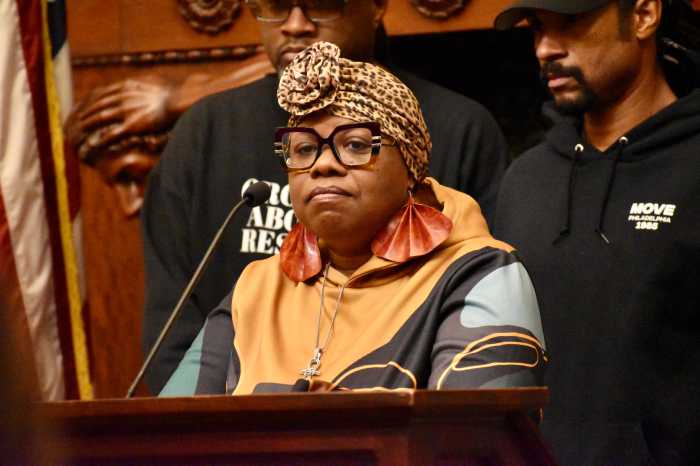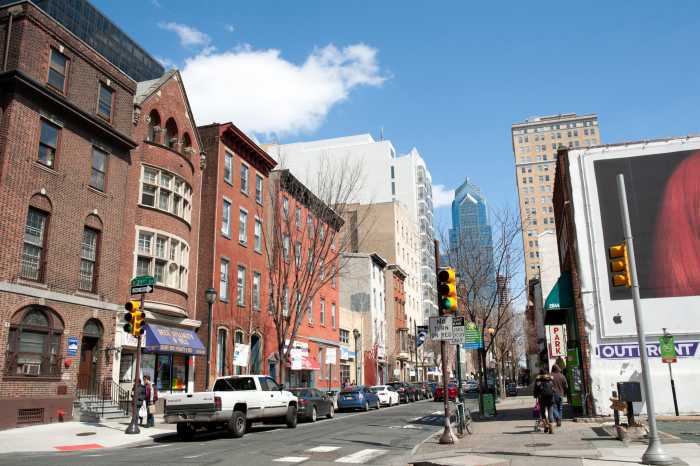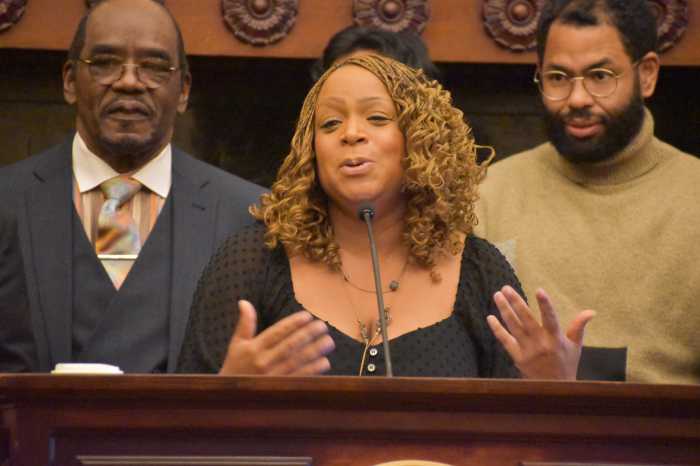City Council’s decision to approve $800 million in borrowing for Mayor Cherelle Parker’s H.O.M.E. plan wasn’t the body’s only action taken last week aimed at making housing more affordable.
Lawmakers also voted on legislation designed to give more homeowners an opportunity to take advantage of a low-income real estate tax benefit; authorized the creation of an anti-displacement fund; and gave prospective renters the opportunity to pay down their security deposits in installments, in certain circumstances.
The bills were considered during a marathon session Thursday, when lawmakers considered nearly 80 pieces of legislation, including the years budget. It was Council’s final meeting before summer break; they will return to City Hall in September.
Low-income freeze
Residents now have until Sept. 30 to apply for the low-income property tax freeze, a program that went into effect last year.
Real estate assessments have been rising for many Philadelphia homes in recent years, and the benefit freezes a property’s valuation for individuals earning $33,500 a year or less and married couples making more than $41,500.
Under the original statute, the deadline to apply was in January; however, the city’s Department of Revenue has still been accepting applications.
Councilmember Jamie Gauthier, who introduced the freeze and sponsored this latest legislation, has said the change will bring the program more in line with other tax breaks, such as the Longtime Owner Occupants Program and the Homestead Exemption.
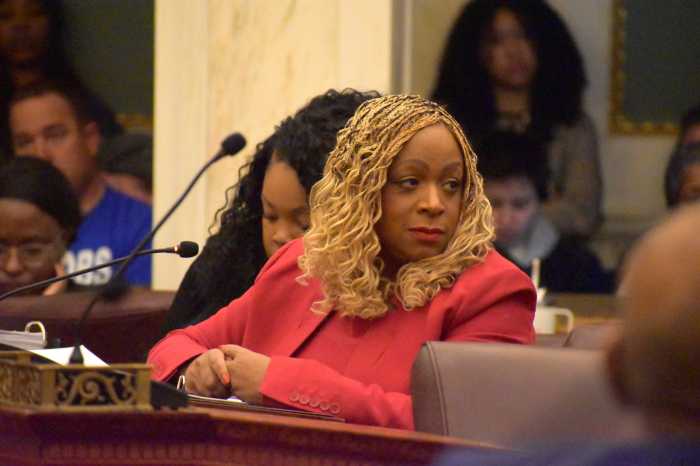
In addition, the bill allows eligible homeowners to have their assessments reverted to 2024 levels. In the future, applicants will be able to go back to the lowest amount billed within the last decade, according to the legislation.
The measure also calls on the city to identify eligible property owners and automatically enroll them.
Uptake has been slow, with less than 5% of those qualifying enrolled in the program, according to Community Legal Services. The Reinvestment Fund has estimated that 62,000 Philadelphians are eligible.
Representatives from the Parker administration, during a hearing earlier this month, questioned the legality of automatic enrollment and said they project the legislation will cost the city and school district more than $6 million in tax revenue over five years.
Nevertheless, Parker signed the bill Friday, according to legislative records.
Anti-displacement fund
Councilmember Nicolas O’Rourke’s bill authorizing the establishment of an anti-displacement fund for tenants forced out of their homes due to a city inspection passed unanimously.
But that does not mean that O’Rourke and the advocates who have been supporting his efforts to increase renter protections are necessarily pleased. No money was allocated to the effort as part of the municipal budget.
One Pennsylvania Renters United Philadelphia, Philly Thrive and other groups are urging the Parker administration to dedicate $5 million from H.O.M.E. to the fund.
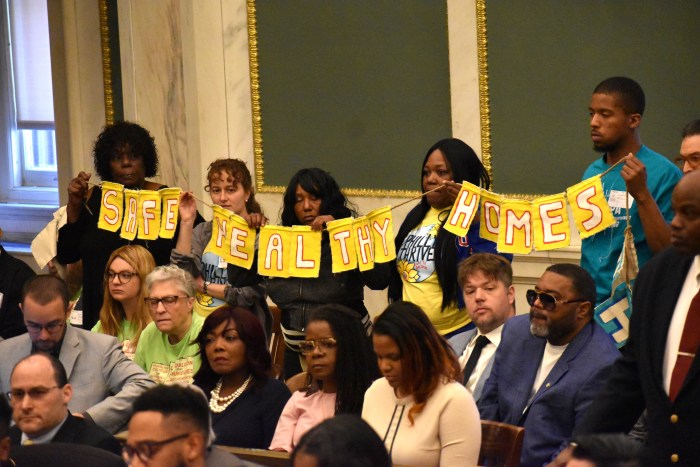
The program, if funded, would provide one-time rental assistance to tenants required to leave because a department – typically Licenses and Inspections – issues a cease operations order to the property owner. An order may be issued if the building’s conditions are deemed uninhabitable.
O’Rourke proposed the idea as part of his Safe Healthy Homes Act, a three-piece legislative package. Council this month held the other two bills – dealing with tenant harassment and setting up a proactive rental inspection program – meaning they will not be considered until September at the earliest.
“Renters need the full package of protections,” renter advocate Melissa Monts told lawmakers during Council’s public comment period Thursday. “We will be back in the fall to fight for the other two bills, and we will not stop until they pass.”
Move-in affordability
Soon, some prospective renters may have the opportunity to pay their security deposit over four installments, rather than as a lump sum, thanks to legislation championed by Councilmember Rue Landau that passed Thursday.
The regulation mandates landlords to offer the option if they are requesting an amount more than one month’s rent for the security deposit. Owners of two or fewer rental units are exempted from the requirements.
No interest can be added through the installments, meaning the security deposit total will remain the same either way.
An earlier version of the bill, as introduced in January, did not incorporate the exception for small landlords and would have permitted the installment plan for any security deposit, no matter the price.
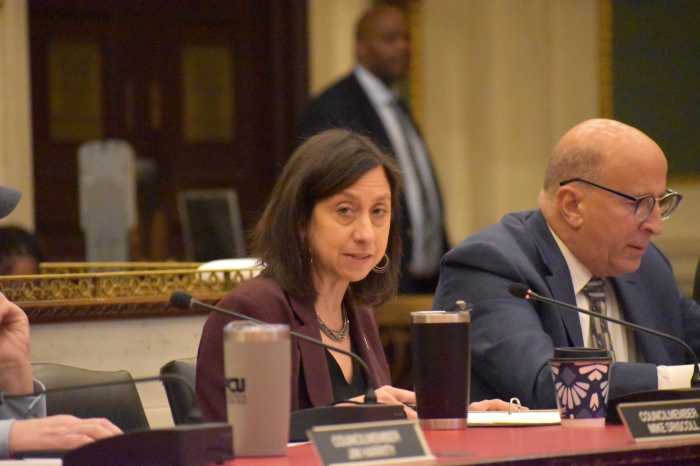
The legislation is one half of Landau’s Move-In Affordability Plan. Council on June 5 approved the other component, a bill capping rental application fees at $50.
“Every Philadelphian deserves the opportunity to move into safe, stable housing without being priced out before they even get through the door,” Landau said in a statement. “These common-sense reforms give renters a fair shot – and help level the playing field in a rental housing market that has increasingly left them behind.”
Both changes will go into effect 90 days after being signed by the mayor. Parker has not yet acted on the legislation.




